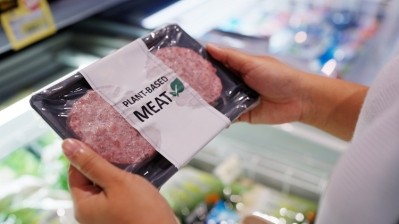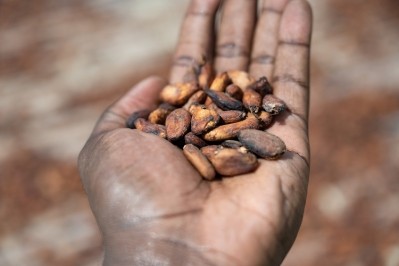Behind Nestlé’s dual strategy for Garden Gourmet: Meat mimicry and plant-forward foods
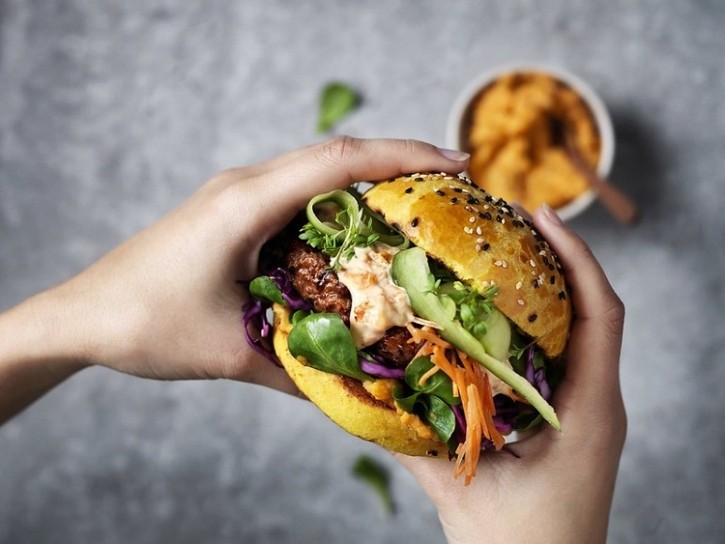
Garden Gourmet cannot be pigeonholed another plant-based meat imitation brand. First founded in Israel in 1986, and acquired by Nestlé in 2017, the brand sells some products that mimic meat, and others that don’t at all.
In the meat mimicry product line, Garden Gourmet markets plant-based alternatives of the classics, including vegan mince, burgers, sausages, and tuna. The brand even released ‘very limited’ quantities of a vegan alternative to foie gras – Voie Gras – into Swiss and Spanish markets.
Garden Gourmet’s plant-forward and ‘vegetable-based’ product line includes breaded offerings filled with colourful vegetables and other ingredients such as broccoli; tomato and mozzarella; carrots, peas and corn; and tomato and red peppers.
The decision to play within both meat mimicry and plant-forward realms comes from a desire to meet different consumer needs, Marjolijn Niggebrugge, business head plant-based meal solutions Europe at Nestlé, explained at FoodNavigator’s recent Protein Vision event.
Catering to different needs, including easy swaps
“We cover a broad portfolio, which is based on our ambition to cater to very different needs in variety,” she told this publication.
Vegetarians and vegans, for example, are trying ‘everything’ that is available in the meat-free segment. They are interested in both meat mimicry and vegetable-based options, Niggebrugge suggested. On the other hand, consumers in the early stages of the flexitarian journey are more likely to enter the category via ‘convenience’ foods.
Whether that means buying a plant-based steak alternative or a vegan chorizo product, it allows consumers to easily prepare a meat-free version of a dish they’re already familiar with. “This shows that people try to stick to their preferred dishes, and are [likely more] willing to change for better alternatives of those same dishes first, before exploring new types of cuisines…”
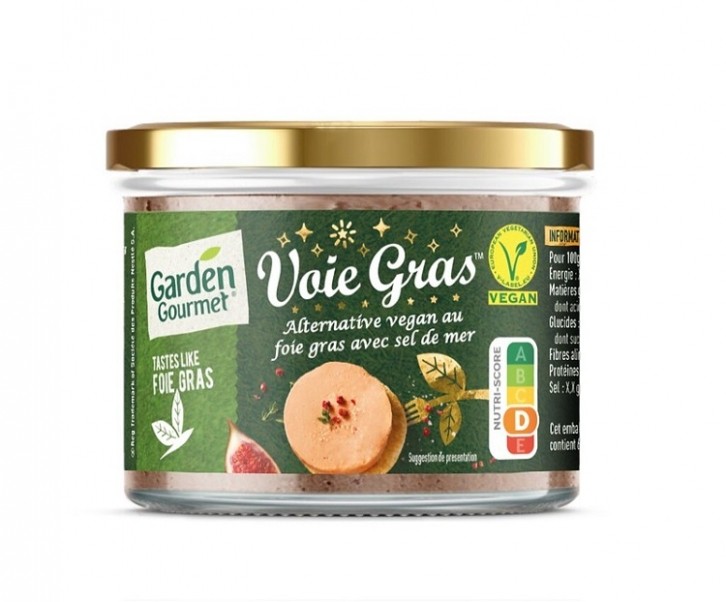
Nestlé continues to develop new plant-based offerings for the brand. Within the last two years alone, Garden Gourmet has released plant-based shrimp, tuna, and egg alternatives, as well as the aforementioned Voie Gras.
This fast-moving new product development strategy aligns with Nestlé’s observation that innovation sparks new interest amongst consumers. It also plays into consumer desire for ‘tasty’ alternatives to conventional meat products, Niggebrugge suggested. “Our original heritage is very much dominated in the vegetable-based part of the portfolio, [but] we also see [people looking for] their previous need components in alternative counterparts.”
Spotlight on nutrition and sustainability
From a health perspective, both approaches are developed with nutrition in mind. “Our goal is foremost to deliver delicious products that provide great nutrition, and this is what we do across our assortment,” explained the business head. “Both meat mimicry but also vegetable-based gives us the opportunity to add fibre, protein or vegetable content, which caters to different needs.”
The brand is ‘very strict’ in setting its nutritional profiles, we were told, and has adopted voluntary nutrition labelling scheme Nutri-Score to help consumers compare products within the same category.
First developed in 2017, Nutri-Score’s algorithm ranks food from -15 for the ‘healthiest’ products to +40 for those that are ‘less healthy’. Based on this score, the product receives a letter wit a corresponding code: from dark green (A) to dark red (F).
Most Garden Gourmet products boast Nutri-Score rankings of either A or B, which the brand attributes to its ‘very large’ team of R&D specialists who are passionate about both ‘eating good food’ and ‘good nutrition’.
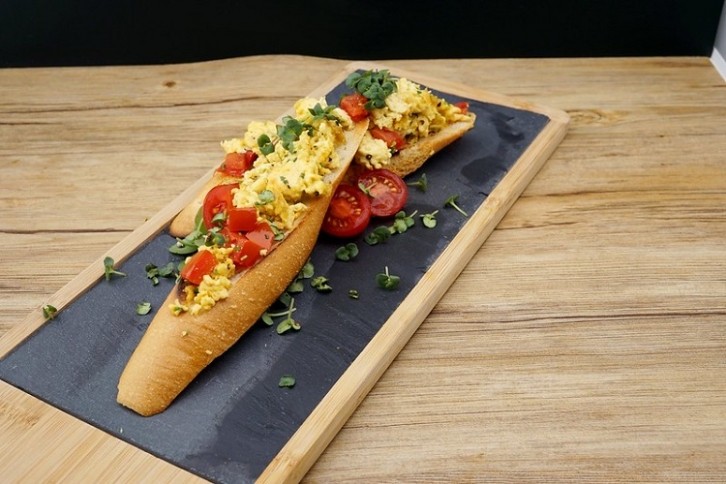
As to environmental sustainability, Niggebrugge said Garden Gourmet is continuously investigating how it can make its offerings ‘even more sustainable’. Acknowledging that most greenhouse gas emissions associated with the brand are connected to its ingredients, raw material sourcing is a major focus.
“As soy is one of our key ingredients, we continue to source closer to home, but also to add our regenerative agricultural practices to the soy produces we obtain products from.”
Garden Gourmet currently communicates on sourcing strategies online but at the same time aspires to put as much information on pack as possible. The brand is also keeping an eye on developments in environmental labelling at EU level. “If it comes to some kind of law setting in this area, we would be very happy to contribute to that.”
Any category 'slow down' is short-term
Garden Gourmet is currently selling into around 25 countries worldwide, but recently withdrew – together with Nestlé’s plant-based milk brand Wunda – from the UK retail market.
Since then, the UK plant-based sector has seen at least two more casualties in plant-based meat contract manufacturer Plant & Bean and Meatless Farm. Plant & Bean’s factory is being acquired by businesses headed up by Heather Mills, and Meatless Farm has been picked up by Vegan Fried Chick*n (VFC) Foods.
Niggebrugge described Garden Gourmet’s decision has a ‘short-term technical move’. In the longer-term, the brand wants to be ‘omnipresent’, she explained: “And that definitely also includes the UK.”
The business head continued: “In the longer-term, we want to be able to offer our variety and our plant-based foods to as many consumers as we can across Europe.”
Although Garden Gourmet is discontinuing sales in UK retail, it continues to sell into foodservice channels in the UK and Ireland. As to whether this decision was informed by differing dynamics between retail and foodservice channels, Niggebrugge said the company has observed a ‘rebalancing’ of in-home vs out-of-home use in the post-COVID environment.
At the same time, the company continues to see consumer appetite for ‘tasty new products’ in both channels. “Obviously, we aim to be part of all those developments, bringing great food and taste to as many consumers as we possibly can.”
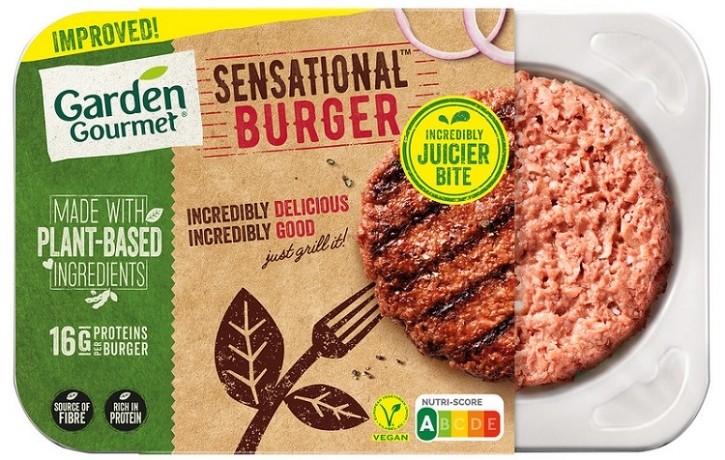
Across the sector more generally, the company sees any ‘slow down’ as short-term. “We know the key drivers for consumption in plant-based are around animal welfare, sustainability and health. In the longer run, we expect that those will continue to drive consumption in plant-based foods.
“For us, it’s a really strategic priority that we continue to drive this diet transition, albeit with some slow down in the shorter term. But all the trends and consumer behaviour are continuing to confirm to us that we are in the right direction with the Garden Gourmet brand.”
Missed Protein Vision 2023? Don’t worry, all four sessions profiling cutting edge innovation in the alternative meat and dairy space are still available to view. Register here to watch on demand.


